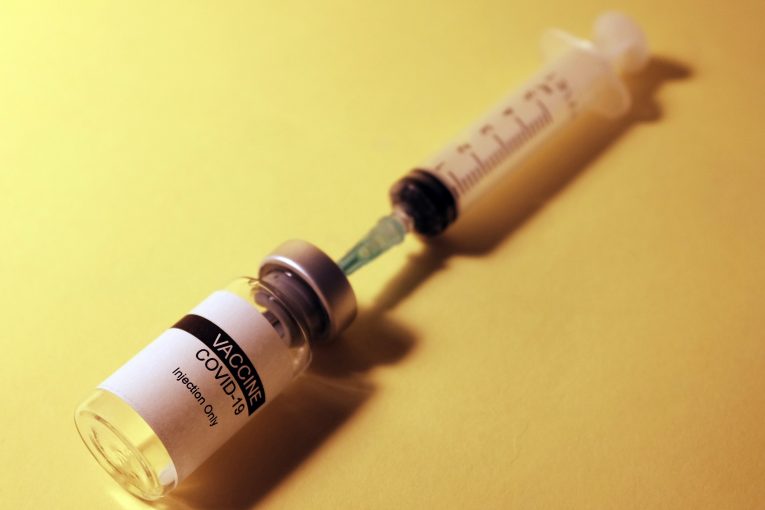
 By Ishani Desai
By Ishani Desai
LA County announced that the Johnson and Johnson vaccine is viable to be administered to many people safely after administrators issued a recall for all vaccines.
The LA County Department of Public Health said that the J&J vaccines can be readministered if a fact sheet is provided along with those of the recipients of the vaccine. The move comes from the investigation of the CDC’s independent advisory committee on immunization practices reviewed the cases and continued its use.
“A review of all available data at this time shows that the J&J/Janssen COVID-19 Vaccine’s known and potential benefits outweigh its known and potential risks for those recommended to receive it,” said the CDC in a press release.
The Centers for Disease Control and Prevention halted the use of the J&J vaccine after reports of six women between the ages of 18 and 48 developed blood clots, six to 13 days after receiving the vaccine. LA County also discontinued the use of this vaccine until the FDA conducted further tests.
Approximately 6.8 million people received the vaccine before the CDC stemmed its administration. The low adverse rate of the CBT prompted the CDC to resume vaccination via the J&J vaccine.
Tuesday, the CDC announced they were investigating two new cases of blood clots arising from the administration of the J&J vaccine, after issuing the notice of the re-administration of the vaccine.
The women were diagnosed with a rare condition called cerebral venous sinus thrombosis. The condition forms blood clots in their brains, which can lead to strokes. CBST is a curable condition.
Those that received the vaccine and did not face any abnormal symptoms, such as abdominal pain to shortness of breath, are more likely to not suffer from blood clots.
Those with a history of blood clots should consult their doctor before receiving the J&J vaccine, said Dr. Naman Shah, associate chief of Public Health’s health care outreach unit.
“If you received the Johnson and Johnson vaccine, a month ago or more, it is extremely unlikely that you’re at risk of developing the blood clotting condition,” said Dr. Paul Simon, the chief science officer at the Department of Public Health.
Many UCLA students also received the J&J vaccine and felt confident they had made the right choice to prefer J&J’s vaccine.
Sally Kim, a UCLA senior majoring in sociology said J&J’s one dose prompted her to receive this vaccine.
“I’m in a weird stage right now where I’m moving out,” Kim said. “I don’t think you can get the first and second doses and like different counties, so I was really happy.”
However, the CDC’s decision made her worried to receive the vaccine.
“If I had the option, I wouldn’t get it,” Kim said. “It’s like that paranoia. People think that it’s not as effective. I don’t want people to be like … Oh you’re not really vaccinated”
All women infections struck Kim as odd.
Chaitanya Bashyam is a UCLA freshman and a physics major is from Texas and opted for the J&J vaccine because of the single shot dose.
“It was mainly just convenience and it was also availability,” Bashyam said. “I felt pretty happy to be able to get the vaccination and come to LA and know that I was part of helping to make LA safer.”
When Bashyam heard about CDC’s announcement, he was still glad to be vaccinated against COVID-19.
“I respect the decision to stop administering it because of safety protocols (because) I am very pro-vaccine,” Bashyam said.
However, Bashyam worried about the anti-vaxxer movement that has gained traction over the course of the pandemic.
“The anti-vaxxers are going to have a field day with this,” Bashyam said. “It was going to be used as ammunition.”
“I don’t want to de-value the experiences of the people (that received the vaccine),” Bashyam said. “If there are a lot of people that aren’t getting vaccinated as a result of that decision, I am a little more inclined to the side of maybe they shouldn’t have recalled it.”
 Ishani Desai is a writer for the LA Vanguard’s campus and city desk. She is a history major at UCLA, originally from Bakersfield, CA.
Ishani Desai is a writer for the LA Vanguard’s campus and city desk. She is a history major at UCLA, originally from Bakersfield, CA.
To sign up for our new newsletter – Everyday Injustice – https://tinyurl.com/yyultcf9
Support our work – to become a sustaining at $5 – $10- $25 per month hit the link: